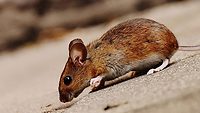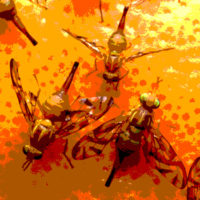Last year’s warning from Homeland Security Secretary Tom Ridge that terrorists may try to use popular food products to deliver chemical or biological warfare took bioterrorism off the big screen and dropped it solidly in the laps of food processors across the country. It’s no longer enough to protect consumers from accidental infestations or contamination due to inadequate sanitation procedures.
“Today, processors have to protect against intentional interference and the possibility that their products could be used as weapons of destruction,” says Kathy Heisohn, Ph.D., regional entomologist for Western Pest Services, a Copesan Pest Solutions Partner. Copesan is an alliance of regional pest management companies united as a single entity for the sole purpose of providing quality pest solutions to businesses with locations throughout North America. “We in the pest management industry play an important role in the way things have changed. There is a link between pest exclusion and food safety and security.”
Few food processors have the big budgets necessary to add security teams and technology to their facilities, but what they do have is an expert already on site who can act as the eyes and ears of security for the plant, says Jim Sargent, Ph.D., Director of Technical Support and Regulatory Compliance with Copesan. “Integrated pest management technicians spend their days walking the interior and exterior of their facilities, monitoring access points and looking for out-of-the-ordinary situations that could indicate a food safety problem.”
With a little training, mentoring and relationship-building, those same technicians can be utilized by the food company’s security staff to monitor the premises for indications of bioterrorism. “Pest management is an integral part of food security,” Sargent says. “It’s already a technician’s job to be on the look out for things that are out of the ordinary and they care about the safety of the products they protect.”
Securing Relationships Secures Your Plant
If food processors take the time to build solid relationships with their pest management technicians and focus them on food security as well as food safety, they can dramatically increase their defense systems with minimal financial impact, Sargent says. He and his team of experts at Copesan offer this advice on how to harness pest management technicians for food security:
Know your people. Pest management technicians are intimately involved with every inch of your facility. They see everything that goes on within it but unless you develop that relationship and create open lines of communication they may not feel able to come to you with concerns that fall outside the realm of pest management. Take the time to work with them and share your food safety and security concerns. Invite them to participate in quality assurance and security meetings, introduce them to relevant staff, and give them a guarantee that if they come to you with an problem it will be immediately addressed.
Create partnerships between food safety and security. Your security team may not even be aware of the pest management personnel or their access to the premises. Bring security and pest management together to create a set of common goals and training opportunities. The security team can mentor pest management technicians on what to look out for when they conduct their daily inspections, such as unusual footprints near the peri-meter or abandoned packages in the plant, and what to do about them. Similar-ly, pest management personnel can teach security about monitoring potential water contamination sites such as drains and sewers, identifying signs of pathogens or pests in raw materials, and choosing security solutions that minimize pest problems, such as opting for sodium vapor lights instead of mercury vapor lights, which attract pests. Working together these two groups can proactively maintain the highest levels of safety and security within a facility at minimal costs.
Keep your facility clean. The cleaner your operation, the more obvious it will be when things are out of the norm. If you’ve got boxes stacked everywhere, one more pile will go unnoticed, making it easier for someone or something to hide. An orderly, clutter-free facility not only reduces the opportunity for pests to multiply unchecked, it makes it difficult for troublemakers to hide their activities.
Employ a reputable pest management company. Choose a pest management company, such as Copesan, with technicians who are specifically trained in the food plant pest management, are cleared with a security background check, and have some knowledge about bioterrorism prevention strategies. Not only do these experienced technicians know what to look for and how to advise the food company on the latest pest management techniques, they also are able to offer advice on food security issues.
Also, in-house technicians don’t have the access to expertise and ongoing training that pest management vendors do and they can’t store chemicals off site, which creates sanitation and bioterrorism hazards within a facility. If pest management chemicals are stored on the property, not only do you risk accidental contamination but you make it easier for disgruntled workers or terrorists to intentionally poison your products and destroy your company name.
www.copesan.com
How Your Pest Management Technician Can Protect Your Company Against Bioterrorism




